#japan adaptation
Explore tagged Tumblr posts
Text




LOVE IN THE AIR - KOI NO YOKAN (2024, JAPAN ADAPTATION)
Episode 1
Gagaoolala Premiere 11/2/2024
Screenplay and Directed By: Tomori Atsuki
Rei (HAMAYA TAKUTO) meets the much lauded Arashi (NAGUMO SHOMA) officially and remembers him. But Arashi doesn't remember Rei. Or does he?
@pose4photoml @just-another-boyslove-blog @negrowhat @absolutebl @wanderlust-in-my-soul
#EPISODE 1#JAPAN ADAPTATION OF MAME#LOVE IN THE AIR (KOI NO YOKAN)#GAGAOOLALA#NOVEMBER 2 2024#SHOMA IS LOOKING GORGEOUS#ARASHI IS PAYU#REI IS RAIN#BL-BAM-BEYOND FAMILY OF BLOGS#My GIFS#MYGIFSET#MY-GIF-EDIT
86 notes
·
View notes
Text



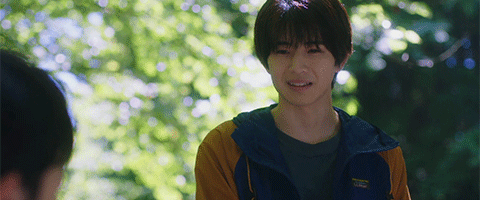
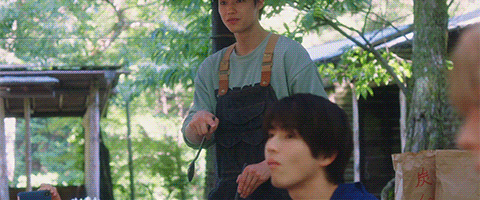

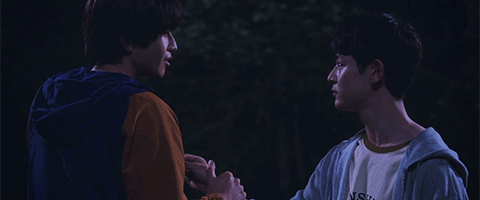

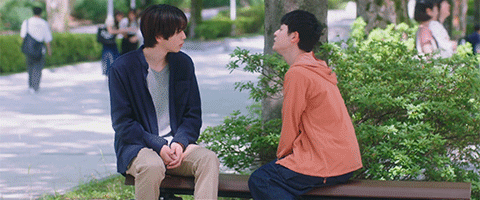
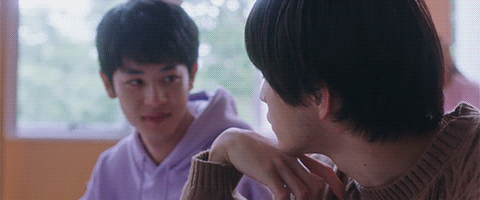
Hidamari ga Kikoeru | S01E06
Japanese Drama - 2024, 12 episodes
Episodes | Gaga | Viki | YouTube | iQIYI | WeTV | Tencent | Catalogue
Native Title: #ひだまりが聴こえる
Adapted: “Hidamari ga Kikoeru” (ひだまりが聴こえる)
Genres: #LGBTQ+ #Romance #Drama
Tags: #Adapted from a Manga #University Life #Youth #Disabled Male Lead
Cast: #Nakazawa Motoki #Kobayashi Toranosuke #Usa Takuma #Natsuki Omi
#Drama: Hidamari ga Kikoeru#I Hear the Sunspot#JDrama#LGBTQ+#Japan BL#BL GIFS#Japanese Drama - 2024#Drama: 2024#Romance#Youth#Drama#Adapted from a Manga#University Life#Disabled Male Lead#ひだまりが聴こえる#Nakazawa Motoki#Kobayashi Toranosuke#Usa Takuma#Natsuki Omi#Kiss Episode
74 notes
·
View notes
Text
Shōgun Historical Shallow-Dive: the Final Part - The Samurai Were Assholes, When 'Accuracy' Isn't Accurate, Beautiful Art, and Where to From Here
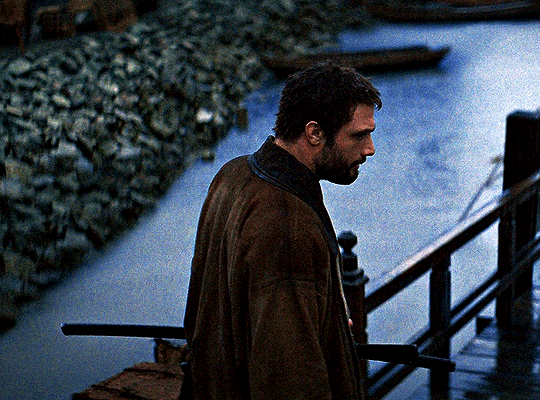
Final part. There is an enormous cancer attached to the samurai mythos and James Clavell's orientalism that I need to address. Well, I want to, anyway. In acknowledging how great the 2024 adaptation of Shōgun is, it's important to engage with the fact that it's fiction, and that much of its marketed authenticity is fake. That doesn't take away from it being an excellent work of fiction, but it is a very important distinction to me.
If you want to engage with the cool 'honourable men with swords' trope without thinking any deeper, navigate away now. Beyond here, there are monsters - literal and figurative. If you're interested in how different forms of media are used to manufacture consent and shape national identity, please bear with me.
I think the makers of 2024's Shōgun have done a fantastic job. But there is one underlying problem they never fully wrestled with. It's one that Hiroyuki Sanada, the leading man and face of the production team, is enthusiastically supportive of. And with the recent announcement of Season 2, it's likely to return. You may disagree, but to me, ignoring this dishonours the millions of people who were killed or brutalised by either the samurai class, or people in the 20th century inspired by a constructed idea of them.
Why are we drawn to the samurai?
A pretty badly sourced, but wildly popular history podcast contends that 'The Japanese are just like everybody else, only more so.' I saw a post on here that tried to make the assertion that the show's John Blackthorne would have been exposed to as much violence as he saw in Japan, and wouldn't have found it abnormal.
This is incorrect. Obviously 16th and 17th century Europe were violent places, but they contained violence familiar to Europeans through their cultural lens. Why am I confidently asserting this? We have hundreds of letters, journals and reports from Spaniards, Portuguese, Dutch and English expressing absolute horror about what they encountered. Testing swords on peasants was becoming so common that it would eventually become the law of the land. Crucifixion was enacted as a punishment for Christians - first by the Taiko, then by the Tokugawa shogunate - for irony's sake.
Before the end of the feudal period, battles would end with the taking of heads for washing and display. Depending on who was viewing them, this was either to honour them, or to gloat: 'I'm alive, you're dead.' These things were ritualised to the point of being codified when real-life Toranaga took control. Seppuku started as a cultural meme and ended up being the enforced punishment for any minor mistake for the 260 years the ruling samurai class acted as the nation's bureaucracy. It got more and more ritualised and flowery the more it got divorced from its origin: men being ordered by other men to kill themselves during a period of chaotic warfare. I've read accounts of samurai 'warriors' during the Edo period committing seppuku for being late for work. Not life-and-death warrior work - after Sekigahara, they were just book-keepers. They had desk jobs.
Since Europe's contact with Japan, the samurai myth has fascinated and appalled in equal measure. As time has gone on, the fascination has gone up and the horror has been dialled down. This is not an accident. This isn't just a change in the rest of the world's perception of the samurai. This is the result of approximately 120 years of Japanese government policies. Successive governments - nationalist, military authoritarian, and post-war democratic - began to lionize the samurai as the perfect warrior ideal, and sanitize the history of their origin and their heydey (the period Shōgun covers). It erases the fact that almost all of the fighting of the glorious samurai Sengoku Jidai was done by peasant ashigaru (levies), who had no choice.
It is important to never forget why this was done initially: to form an imagined-historical ideal of a fighting culture. An imagined fighting culture that Japanese invasion forces could emulate to take colonies and subdue foreign populations in WWI, and, much more brutally, in WWII. James Clavell came into contact with it as a Japanese Prisoner of War.
He just didn't have access to the long view, or he didn't care.
The Original Novel - How One Ayn Rand Fan Introduced Japan to America
There's a reason why 1975's Shogun novel contains so many historical anachronisms. James Clavell bought into a bunch of state-sanctioned lies, unachored in history, about the warring states period, the concept of bushido (manufactured after the samurai had stopped fighting), and the samurai class's role in Japanese history.
For the novel, I could go into great depth, but there are three things that stand out.
Never let the truth get in the way of a good story. He's a novelist, and he did what he liked. But Clavell's novel was groundbreaking in the 70's because it was sold as a lightly-fictionalised history of Japan. The unfortunate fact is the official version that was being taught at the time (and now) is horseshit, and used for far-right wing authoritarian/nationalist political projects. The Three Unifiers and the 'honour of the samurai' magnates at the time is a neat package to tell kids and adults, but it was manufactured by an early-20th century Japanese Imperial Government trying to harness nationalism for building up a war-ready population. Any slightly critical reading of the primary sources shows the samurai to be just like any ruling class - brutal, venal, self-interested, and horrifically cruel. Even to their contemporary warrior elites in Korea and China.
Fake history as propraganda. Clavell swallowed and regurgitated the 'death before dishonour', 'loyalty to the cause above all else', 'it's all for the Realm' messages that were deployed to justify Imperial Japanese Army Class-A war crimes during the war in the Pacific and the Creation of the Greater East Asian Co-Properity Sphere. This retroactive samurai ethos was used in the late Meiji restoration and early 20th century nationalist-military governments to radicalise young Japanese men into being willing to die for nothing, and kill without restraint. The best book on this is An Introduction to Japanese Society by Sugimoto Yoshio, but there is a vast corpus of scholarship to back it up.
Clavell's orientalism strays into outright racism. Despite the novel Shōgun undercutting John Blackthorne as a white savior in its final pages - showing him as just a pawn in the game - Clavell's politics come into play in every Asia Saga novel. A white man dominates an Asian culture through the power of capitalism. This is orthagonal to points 1 and 2, but Clavell was a devotee of Ayn Rand. There's a reason his protagonists all appear cut from the same cloth. They thrust their way into an unfamiliar society, they use their knowledge of trade and mercantilism to heroically save the day, they are remarked upon by the Asian characters as braver and stronger, and they are irresistible to the - mostly simpering, extremely submissive - caricatures of Asian women in his novels. Call it a product of its times or a product of Clavell's beliefs, I still find it repulsive. Clavell invents (nearly from whole cloth, actually) the idea that samurai find money repulsive and distasteful, and his Blackthorne shows them the power of commerce and markets. Plus there are numerous other stereotypes (Blackthorne's massive dick! Japanese men have tiny penises! Everyone gets naked and bathes together because they're so sexually free! White guys are automatically cool over there!) that have fuelled the fantasies of generations of non-Japanese men, usually white: Clavell's primary audience of 'dad history' buffs.
2024's Shōgun, as a television adaptation, did a far better job in almost every respect
But the show did much better, right? Yes. Unquestionably. It was an incredible achievement in bringing forward a tired, stereotypical story to add new themes of cultural encounter, questioning one's place in the broader world, and killing your ego. In many ways, the show was the antithesis to Clavell's thesis.
It drastically reigned in the anachronistic, ahistorical referencees to 'bushido' and 'samurai honor', and showed the ruling class of Japan in 1600 much more accurately. John Blackthorne (William Adams) was shown to be an extraordinary person, but he wasn't central to the outcome of the Eastern Army-Western Army civil war. There aren't scenes of him being the best lover every woman he encounters in Japan has ever had (if you haven't read the book, this is not an exaggeration). He doesn't teach Japanese warriors how to use matchlock rifles, which they had been doing for two hundred years. He doesn't change the outcome of enormous events with his thrusting, self-confident individualism. In 2024's Shōgun, Blackthorne is much like his historical counterpart. He was there for fascinating events, but not central. He wasn't teaching Japanese people basic concepts like how to make money or how to make war.
On fake history - the manufactured samurai mythos - it improved on the novel, but didn't overcome the central problems. In many ways, I can't blame the showrunners. Many of the central lies (and they are deliberate lies) constructed around the concept of samurai are hallmarks of the genre. But it's still important to me to notice when it's happening - even while enjoying some of the tropes - without passively accepting it.
'Authenticity' to a precisely manufactured story, not to history
There's a core problem surrounding the promotion and manufactured discussion surrounding 2024's Shōgun. I think it's a disconnect between the creative and marketing teams, but it came up again and again in advertising and promotion for the show: 'It's authentic. It's as real as possible.'
I've only seen this brought up in one article, Shōgun Has a Japanese-Superiority Complex, by Ryu Spaeth:
'The show also valorizes a supreme military power that is tempered by the pursuit of beauty and the highest of cultures, as if that might be a formula for peace. Shōgun displays these two extremes of the Japanese self, the savagery and the refinement, but seems wholly unaware that there may be a connection between them, that the exquisite sensibility Japan is famous for may flow from, and be a mask for, its many uses of atrocious domination.'
Here we come to authenticity.
'The publicity surrounding the series has focused on its fidelity to authenticity: multiple rounds of translation to give the dialogue a “classical” feel; fastidious attention to how katana swords should be slung, how women of the nobility should fold their knees when they sit, how kimonos should be colored and styled; and, crucially, a decentralization of the narrative so that it’s not dominated by the character John Blackthorne.'
It's undeniable that the 2024 production spent enormous amounts of energy on authenticity. But authenticity to what? To traditional depictions of samurai in Japanese media, not to history itself. The experts hired for gestures, movement, costumes, buildings, and every other aspect of the show were experts with decades in experience making Japanese historical dramas 'look right', not experts in Japanese history. But this appeal to 'Japanese authenticity' was made in almost every piece of promotional material.
The show had only one historical advisor on staff, and he was Dutch. The numerous Japanese consultants, experts and specialists brought on board (talked about at length in the show's marketing and behind the scenes) were there to assist with making an accurate Japanese jidaigeki. It's the difference between hiring an experienced BBC period drama consultant, and a historian specialising in the Regency. One knows how to make things look 'right' to a British audience. The other knows what actually happened.
That's fine, but a critical viewing of the show needs to engage with this. It's a stylistically accurate Japanese period drama. It is not an accurate telling of Japanese history around the unification of Japan. If it was, the horses would be the size of ponies, there would be far more malnourished and brutalised peasants, the word samurai would have far less importance as it wasn't yet a rigidly enforced caste, seppuku wouldn't yet be ritualised and performed with as much frequency, and Toranaga - Tokugawa - would be a famously corpulently obese man, pounding the saddle of his horse in frustration at minor setbacks, as he was in history.
The noble picture of restraint, patience, refinement and honour presented by Hiroyuki Sanada as Toranaga/Tokugawa is historical sanitation at its most extreme. Despite being Sanada's personal hero, Tokugawa Ieyasu was a brutal warlord (even for the standards of the time), and he committed acts of horrific cruelty. He ordered many more after gaining ultimate power. Think a miniseries about the Founding Fathers of the United States that doesn't touch upon slavery - I'm sure there have been plenty.
The final myth that 2024's Shōgun leaves us with is that it took a man like Toranaga - Tokugawa Ieyasu - to bring peace to a land ripped assunder by chaos. This plays into 19th century notions of Great Man History, and is a neat story, but the consensus amongst historians is if it wasn't Tokugawa, it would have been some other cunt. In many cases, it very nearly was. His success was historical contingency, not 5D chess.
So how did this image get manufactured, to the point where the Japanese populace - by and large - believes it to be true? Very long story short: after a period of rapid modernisation, Japan embraced nationalism in the late 19th century. It was all the rage. Nationalism depends on a glorified past. The samurai (recently the pariahs of Japanese history) were repurposed as Japan's unique warrior heroes, and woven into state education. This was especially heated in the 1920s and 30s in the lead up to the invasion of Manchuria and Japan's war of aggression in the Pacific. Nationalism + militarism = the modern Japanese samurai myth, to prepare men to obey orders unquestioningly from a military dictatorship.
This persists in the postwar period. Every year since 1963, Japan's state broadcaster NHK commissions a historical drama - a Taiga Drama, where many of this show's actors got their starts - that manufactures and re-enforces the idea of samurai as noble, artful, honourable people. Read a book - read a Wikipedia article! - and you'll see that most of it stems from Tokugawa-shogunate era self-propaganda. It's much like the European re-interpretation of chivalry. In Europe's case, chivalry in actual history was a set of guidelines that allowed for the sanctioned mass-rape and murder of civilians, with a side of rules regarding the ransoming of nobles in scorched-earth military campaigns. In Japan's case, historical figures that regularly backstabbed each other, tortured rival warriors and their lessers, and inflicted horrific casualties on the peasants that they owned (we have a term for that) are cast as noble, honourable, dedicated servants of the Empire.
Why does this matter to me? Samurai movies and TV shows are just media, after all. The issue, for me, is that the actors, the producers - including Hiroyuki Sanada - passionately extoll 'accuracy' as if they genuinely believe they're telling history. They talk emotionally about bushido and its special place in Japanese society.
But the entire concept of bushido is a retroactive, post-conflict, samurai construction. Bushio is bullshit. Despite being spoken of as the central tenet of 2024's Shōgun by actors like Hiroyuki Sanada, Tadanobu Asano, and Tokuma Nishioka, it simply didn't exist at the time. It was made up after the advent of modern nationalism.
It was used to justify horrendous acts during the late Edo period, the Meiji restoration, and the years leading up to the conclusion of Japan's war of aggression in the Pacific. It's still used now by Japan's primarily right-wing government to deny war crimes and justify the horrors unleashed on Asia and the Pacific during World War II as some kind of noble warrior crusade. If you ever want your stomach turned, visit the museum attached to Yasukuni Shrine. It's a theme park dedicated to war crimes denial, linked intimately to Japan's imagined warrior past. Whether or not the production staff, cast, and marketing team of 2024's Shōgun knew they were engaging with a long line of ahistorical bullshit is unknown, but it is important.
It's also important to acknowledge that, having listened to many interviews with Rachel Kondo and Justin Marks, they were acutely aware that they weren't Japanese, to claim to be telling an authentically Japanese story would be wrong, and that all they could do was do their best to make an engaging work that plays on ideas of cultural encounter and letting go. I think the 'authenticity!' thing is mostly marketing, and judicious editing of what the creators and writers actually said in interviews.
So... you hate the show, then? What the hell is this all about?
No, I love the show. It's beautiful. But it's a beautiful artwork.
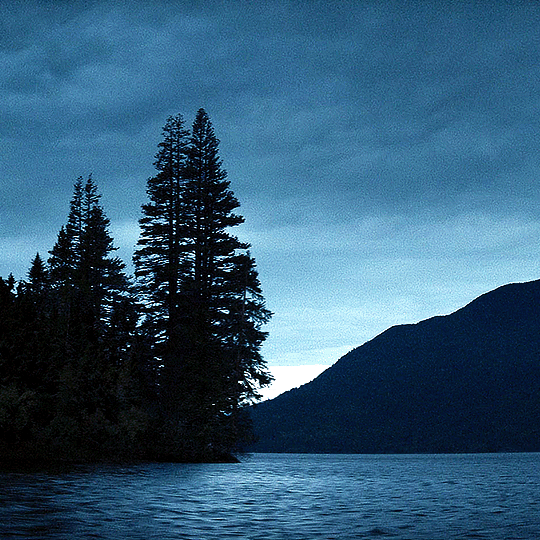
Just as the noh theatre in the show was a twisting of events within the show, so are all works of fiction that take inspiration from history. Some do it better than others. And on balance, in the show, Shōgun did it better than most. But so much of the marketing and the discussion of this adaptation has been on its accuracy. This has been by design - it was the strategy Disney adopted to market the show and give it a unique viewing proposition.
'This time, Shōgun is authentic!*
*an authentic Japanese period drama, but we won't mention that part.
And audiences have conflated that with what actually happened, as opposed to accuracy to a particular form of Japanese propaganda that has been honed over a century. This difference is crucial.
It doesn't detract from my enjoyment of it. Where I view James Clavell's novel as a horrid remnant of an orientalist, racist past, I believe the showrunners of 2024's Shōgun have updated that story to put Japanese characters front and centre, to decentralise the white protagonist to a more accurate place of observation and interest, and do their best to make a compelling subversion of the 'stranger in a strange land' tale.
But I don't want anyone who reads my words or has followed this series to think that the samurai were better than the armed thugs of any society. They weren't more noble, they weren't more honourable, they weren't more restrained. They just had 260 years in which they worked desk-jobs while wearing two swords to write stories about how glorious the good old days were, and how great people were.
Well... that's a bleak note to end on. Where to from here?
There are beautiful works of fiction that engage much closer with the actual truth of the samurai class that I'd recommend. One even stars Hiroyuki Sanada, and is (I think) his finest role.
I'd really encourage anyone who enjoyed Shōgun to check out The Twilight Samurai. That was the reality for the vast majority of post-Sekigahara samurai
For something closer to the period that Shogun is set, the best film is Seppuku (Hara-Kiri in English releases). It is a post-war Japanese film that engages both with the reality of samurai rule, and, through its central themes, how that created mythos was used to radicalise millions of Japanese into senseless death during the war. It is the best possible response to a romanticisation of a brutal, hateful period of history, dominated by cruel men who put power first, every single time.
I want to end this series, if I can, with hope. I hope that reading the novel or watching the 1980 show or the 2024 show has ignited in people an interest in Japanese culture, or society, or history. But don't let that be an end. Go further. There are so many things that aren't whitewashed warlords nobly killing - the social history of Japan is amazing, as is the women's history. A great book for getting an introduction to this is The Japanese: A History in 20 Lives.
And outside of that, there are so many beautiful Japanese movies and shows that don't deal with glorified violence and death. In fact, it makes up the vast majority of Japanese media! Who would have thought! Your Name was the first major work of art to bridge some of the cultural animosity between China and Japan stemming from WW2, and is a goofy time travel love story. Perfect Days is a beautiful movie about the simple joy of living, and it's about the most Tokyo story you can get.
Please go out, read more, watch more. If you can, try and find your way to Japan. It's one of the most beautiful places on earth. The people are kind, the food is delicious, and the culture is very welcoming to foreigners.
2024's Shōgun was great, but please don't let that be the end. Let it be the beginning, and I hope it serves as a gateway for you.
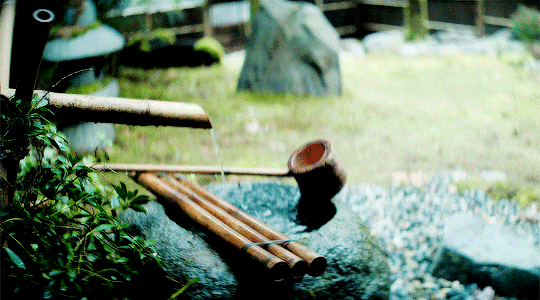
And I hope our little fandom on here remembers this show as a special time, where we came together to talk about something we loved. I'll miss you all.
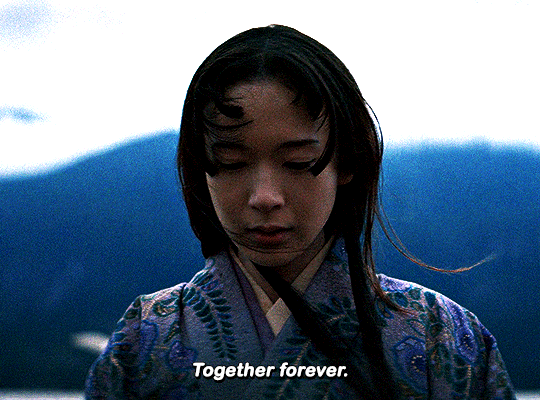
#shōgun#shogun#shogun fx#toda mariko#john blackthorne#anjin#adaptationsdaily#perioddramasource#hiroyuki sanada#yoshii toranaga#akechi mariko#history#history lesson#japan#world war ii#japanese culture#tokugawa ieyasu#hosokowa gracia#william adams#sengoku jidai#writer stuff#book adaptation#women in history#social history#period drama
138 notes
·
View notes
Text
I Cannot Reach You - Kimi ni wa Todokanai REVIEWED
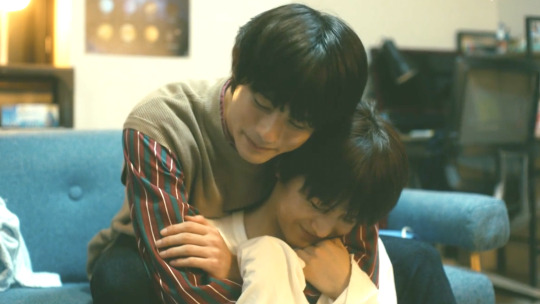
This image perfectly captures how I feel about this show. You ready? I wasn't.
I Cannot Reach You
AKA I Can't Reach You AKA Kimi ni wa Todokanai
Japan 2023 - 8 eps 20 ea approx 2.5 hours
Themes, main tropes & archetypes: friends to lovers, tsundere/sunshine, self acceptance, self worth, high school BL, live action yaoi, soft romance, kindness
Rating? 10/10
Yeah, it happened again in 2023.
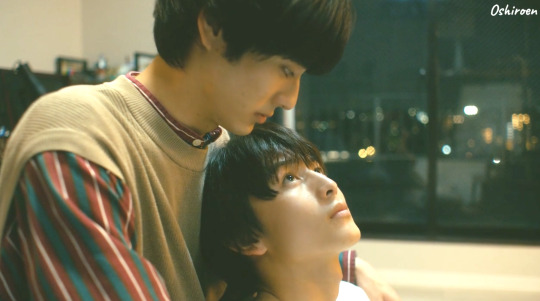
Adapted from a manga.
The moment I finished binging this show I was thinking about writing about it and re-watching it. This is a sure sign that I adored a piece of media.
This is a wonderful BL.
Truly well executed, with smooth filming and lovely acting, both of a simplistic style that felt slightly more Korean than it did Japanese. It reminded me a little bit of Seven Days and a little bit of Takara and Amagi, and since these are my two favorite high school JBLs obviously I was bound to adore ICRY.
But what it reminded me of more than anything was Cherry Blossoms After Winter.
Odd for JBL and KBL to be so closely linked.
Like CBAW show, ICRY is classic live action yaoi.
Like the MOST classic of CLASSIC.

All the JBL tropes. I mean look at that image above? It's rooftop assignation, kabedon, and a handhold ALL AT ONCE.
There was also multiple runnings of the gays, surprise kisses (one on a bridge), and shoulder leans.
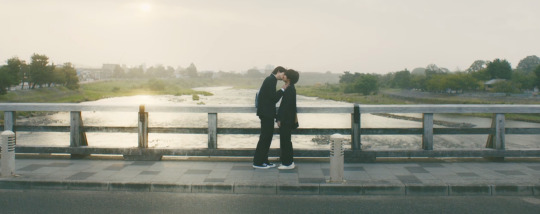
There is even a “seme looses control to desire” scene which leads to dub con. There is an abject apology after but still - you’ve been warned.
The premise is: smart sporty hot (and hella gay) Yamato has a long standing crush on his silly sunshine sweetheart bestie, Kakeru. Yamato is also stiff, self isolated, shy, and has only ever really managed to get along with Kakeru. I love this kind of pining seme so damn much, it probably biased me.
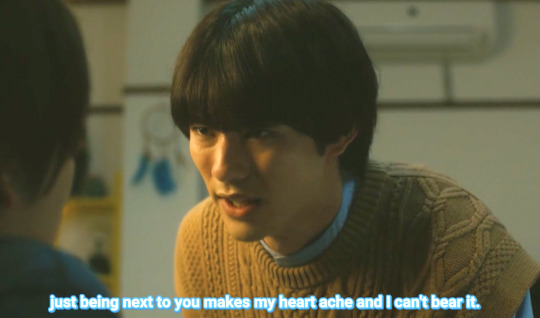
Unlike most uke, Kakeru starts to slowly figure out that his best friend is in love with him by ep 2 (let the chaos bisexual identity crisis commence).
So do some of the friends around them.
The story thus revolves around Yamato trying to unsuccessfully suppress his desire, and Kakeru trying to figure out if he can return Yamato‘s affection.

This biggest barrier is actually Kakeru's feelings of inadequacy and unworthiness (when compared to Yamato). But this is tempered by his genuine kindness which forces him into act with integrity around his dear friend's love and strive to fix everything (even himself) to prove worthy of it - whether he can ultimately return it or not.
Kakeru's struggles are pitted against Yamato‘s repressed need that keeps bubbling over and figuratively (sometimes literally) attacking Kakeru with romantic, emotional, and physical intensity.

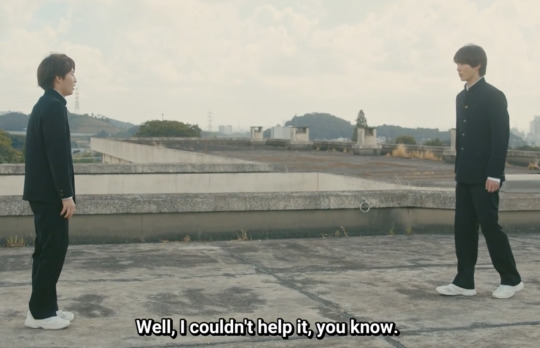
Quick pitch:
This classic friends-to-lovers BL is everything Japan does best. Angsty. Emo. Aching. Driven by real thirst. Yamato is deeply in love with his childhood bestie, Kakeru, and has been for ages, unable to hide his ungainly damaging high school need. He wants Kakeru in every way possible and it oozes off of the screen. Kakeru is silly and a little simple, but not frenetic or overly camp about it. He is earnest, and genuinely wants to keep Yamato in his life which means giving a romance (and gayness) a fair chance. We watch him realize his affection and what form it can take in a truly authentic way. This show was impossibly kind to both of its lead characters and I felt almost honored that I got to watch something so lovely and rare play out on my screen.

I’m not gonna lie, I dithered over whether to give this a 10/10 and nearly didn’t. But there is nothing wrong with it AS A BL.
And it's so GOOD to ALL of its characters and they are so good to each other. It's quiet, and because of that and its goodness, it will get overlooked, but I LOVED IT.
It's not one of those that BL outsiders will get and you must like Japan's style to enjoy it. But I'm in it. It's for me.
What am I hung up over? Even the kisses are good.
10/10
I CAN'T RECOMMEND IT HIGHLY ENOUGH
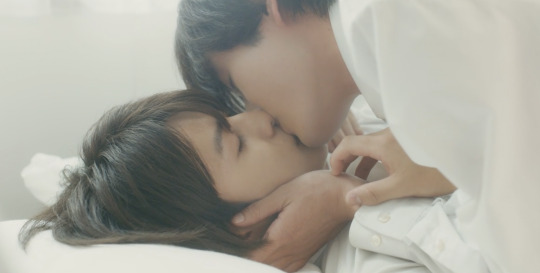
Welcome to a very elite club. I gotta change all my best of lists now.
I am sorry to tell you how difficult this show is to get hold of. It deserves a much wider distribution. As of Nov 2023 I do not know where to legally find it internationally with eng subs. Please check the comments for updates.
It's on Netflix in some countries!
Try to find it, you won't regret it.
(source)
#my favorite JBL of 2023#best of the year?#Japanese BL#I Cannot Reach You#Kimi ni wa Todokanai#JBL#Japanese bl#live action yaoi#adapted from a manga#this is what i want from japan#it's just so good and so good to it's characters and they are so good to each other
302 notes
·
View notes
Text
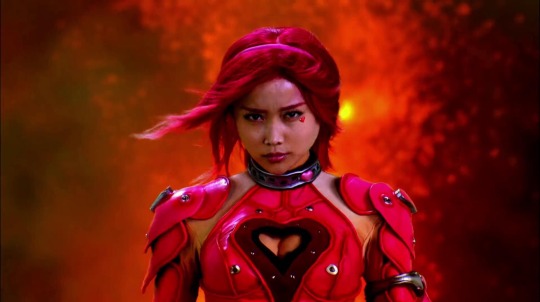

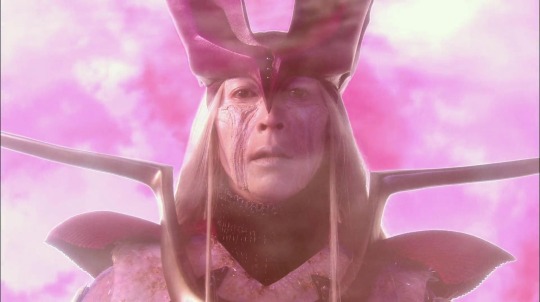
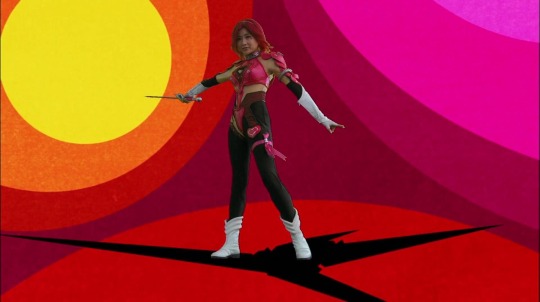

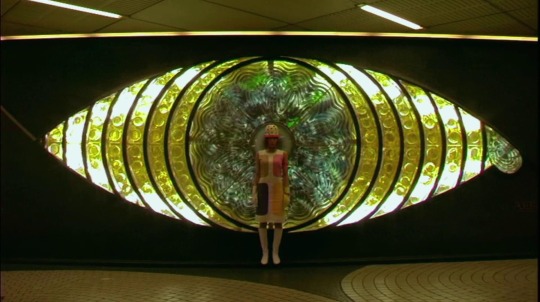
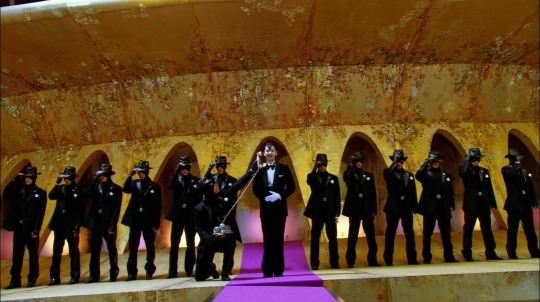

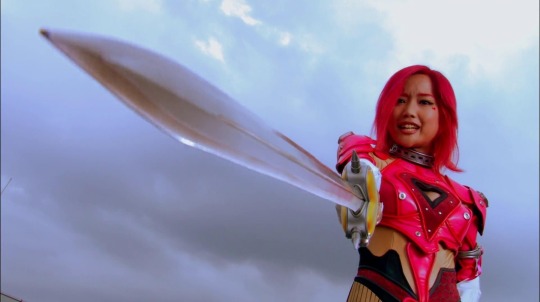

Cutie Honey (2004)
Dir. Hideaki Anno
#cutie honey#movie#film#Japan#Japanese#japanesefilm#japanese cinema#asian films#asian cinema#hideaki anno#adaptation#tokyo#panther claw#tokusatsu#tokusatsu film#action#sci fi#manga#superhero#superhero movie#stylish#Eriko sato#mikako ichikawa#natsuko aki#black claw#gold claw#sister Jill#hairi katagiri#jun murakami#mitsuhiro oikawa
78 notes
·
View notes
Text

Gaga coming through as usual!
#love in the air the series#love in the air#love in the air japan#love in the air jp#love in the air koi#japanese bl#japanese drama#jbl#asian bl series#asian bl drama#asianlgbtqdramas#I’m genuinely intrigued to see what this adaptation will be like#gagaoolala
50 notes
·
View notes
Text
I hope everyone involved with LITA Koi gets exactly what they want for the rest of their lives.
51 notes
·
View notes
Text
The casts of Cells at Work (2024) looks good! Can't wait to watch it!
Mei Nagano

Takeru Satoh

Riisa Naka

Koji Yamamoto

Kyoko Fukada

Sadawo Abe

Mana Ashida

There are 37 trillion cells in the human body. Red blood cells that carry oxygen, white blood cells that fight bacteria, and other cells work tirelessly day and night to protect your health and life.
youtube
Story takes a look at the cells in the bodies of a father and daughter, and the ongoing battle as pathogens start to sneak up on their bodies, and how different lifestyles and age affects them differently.
#cells at work#japanese movie#j movie#live adaptation#mei nagano#nagano mei#takeru satoh#satoh takeru#riisa naka#naka riisa#koji yamamoto#yamamoto koji#kyoko fukada#fukada kyoko#sadawo abe#abe sadawo#mana ashida#ashida mana#japan
36 notes
·
View notes
Text




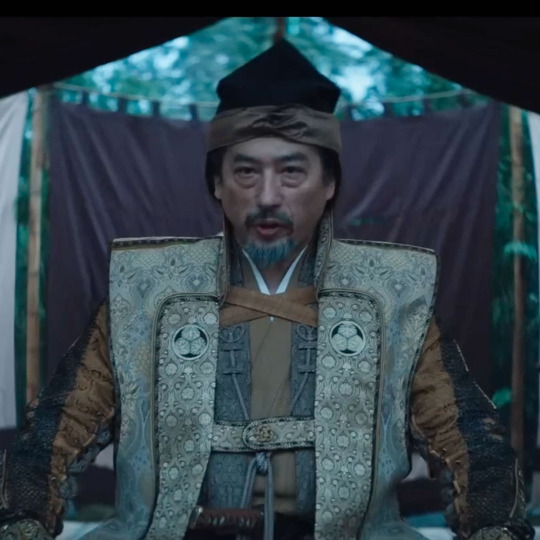


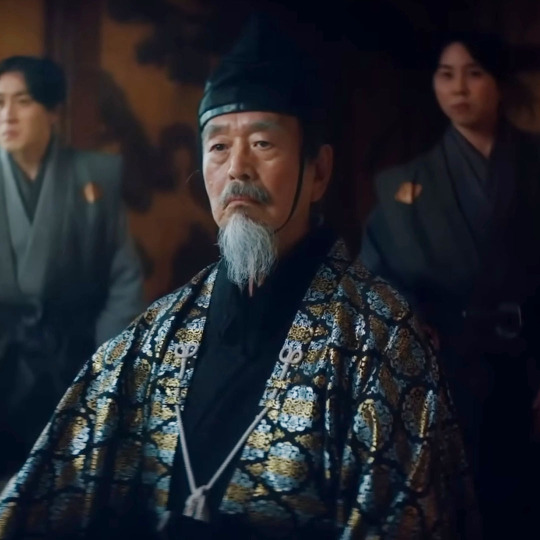
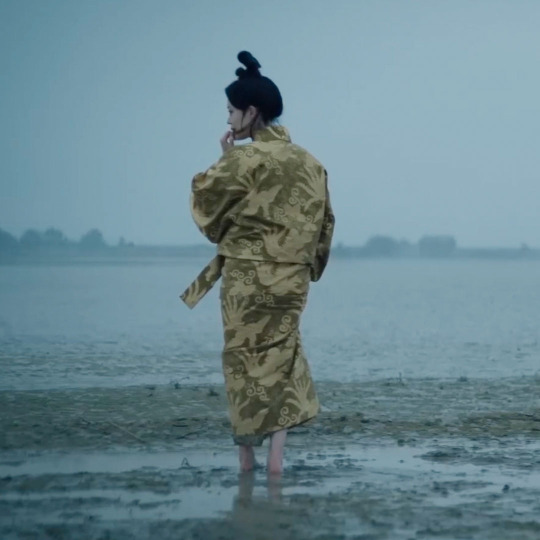
From the samurai's armor to the geisha's delicate kimono, the costumes in Shōgun are not just clothes, but living, breathing works of art, painstakingly created to transport us back in time 🎎✨
#Shogun#Shōgun#Shogunedit#Costume#CostumeDesign#Design#Shogun 2024#FX#Anna Sawai#Cosmo Jarvis#Toda Mariko#Mariko#Adaptations Daily#TV and Film#TV#TVSeries#Japan#Japanese Fashion
64 notes
·
View notes
Text
House of Sayuri (2024)
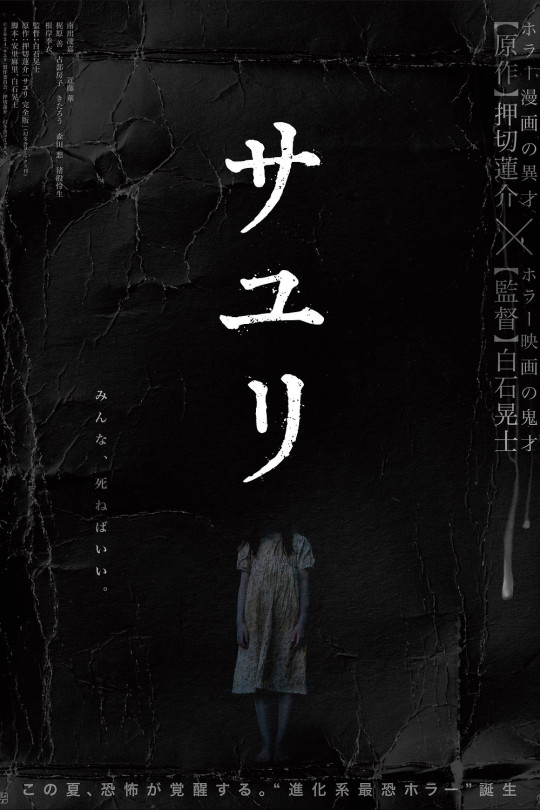
Directed by: Koji Shiraishi
Genre: Horror, Supernatural
Synopsis:
The Kamiki family has moved into their dream single-family home. The happy time of the 7-member family was short-lived. A family where each member dies one by one, with strange laughter heard from somewhere. There is something in this house… ~ Adapted from the manga series "Sayuri" (サユリ) by Oshikiri Rensuke (押切蓮介).
An exciting horror manga adaptation!
I love Oshikiri Rensuke's works, especially Misu Misou, and I just finished reading Sayuri as well - which is another awesome recommendation. This manga has a ton of creepy and insane moments!
I couldn't find this movie streaming anywhere, but I hope it becomes available soon. Oh, and have I mentioned that it's directed by the same director who brought us Noroi: The Curse, Dark Tales of Japan, and Occult? I'm even more excited now! Here's the trailer:
youtube
#house of sayuri#asian horror#japan#japanese horror#manga adaptation#koji shiraishi#oshikiri rensuke#sayuri#wishlist#video
44 notes
·
View notes
Text
is it wrong for me to not want an orv anime adaptation?? 😭😭
#i'm happy with the webnovel and manhwa#i just wanna gatekeep#idk bro#orv#omniscient reader's viewpoint#omniscient reader novel#omniscient reader webtoon#anime#anime adaptation#I don't really want it#what if they japan-ify everything?#that's mess with multiple plot points#pls I'm not a hater but I'm happy with what i have#and fanart#and#blackbox art#kim dokja#also his wings are so awesome#in the manhwa#demon king of salvation#i would eat that art#insert appropriate tags
24 notes
·
View notes
Text
OMG!!! Japan is adapting MAME'S Novels made into the series LOVE IN THE AIR.

Nagumo Shoma (from 25 Ji, AKASAKA DE) has been cast in the Phuyu originally played by BOSS

Takuto Hamaya is set to play Rain...while casting of Sky and Prapai is to be announced soon. Set to premiere in November 2024
@pose4photoml @absolutebl @just-another-boyslove-blog @lutawolf @negrowhat
#JAPAN ADAPTING MAME SERIES#LOVE IN THE AIR#COMING SOON#PHAYU AND RAIN CAST#PRAPAI AND SKY CASTING FORTHCOMING#SURELY THE NAMES WILL CHANGE TO RECOGNIZE JAPANESE CULTURE#Source: X (FORMERLY TWITTER)
90 notes
·
View notes
Text


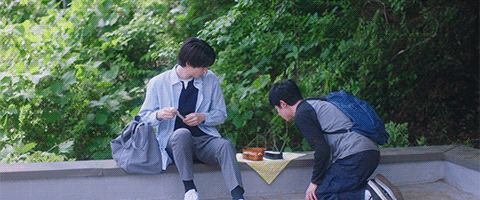
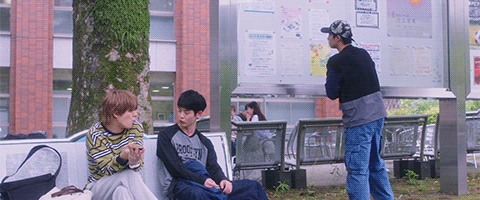

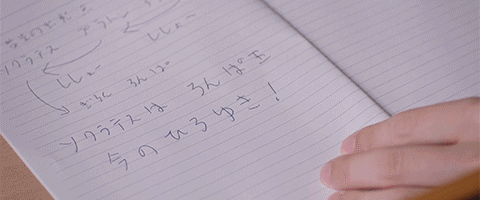


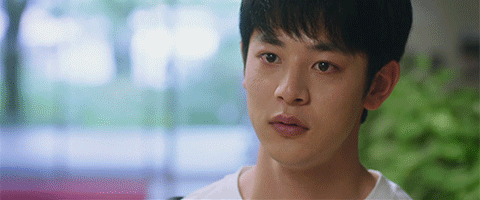
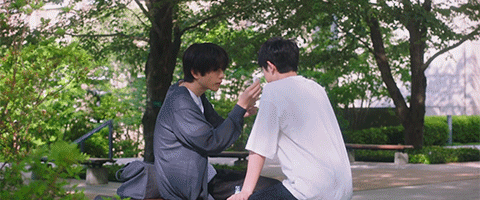
Hidamari ga Kikoeru | S01E01
Japanese Drama - 2024, 12 episodes
Episodes | Gaga | Viki | YouTube | iQIYI | WeTV | Tencent | Catalogue
Native Title: #ひだまりが聴こえる
Adapted: "Hidamari ga Kikoeru" (ひだまりが聴こえる)
Genres: #LGBTQ+ #Romance #Drama
Tags: #Adapted from a Manga #University Life #Youth #Disabled Male Lead
Cast: #Nakazawa Motoki #Kobayashi Toranosuke #Usa Takuma #Natsuki Omi
#Drama: Hidamari ga Kikoeru#I Hear the Sunspot#JDrama#LGBTQ+#Japan BL#BL GIFS#Japanese Drama - 2024#Drama: 2024#Romance#Youth#Drama#Adapted from a Manga#University Life#Disabled Male Lead#ひだまりが聴こえる#Nakazawa Motoki#Kobayashi Toranosuke#Usa Takuma#Natsuki Omi
82 notes
·
View notes
Text

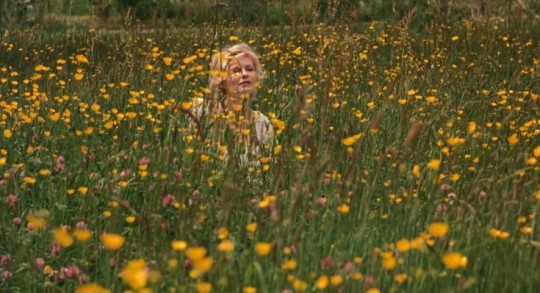


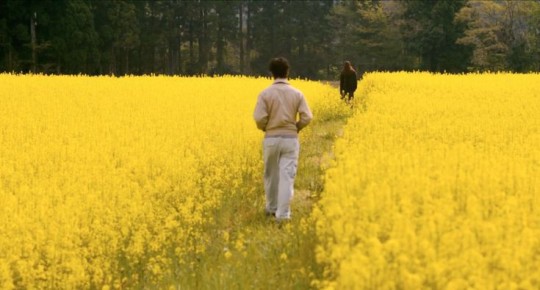


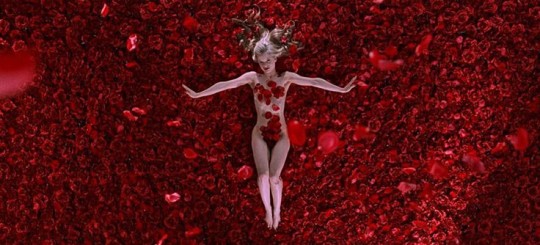
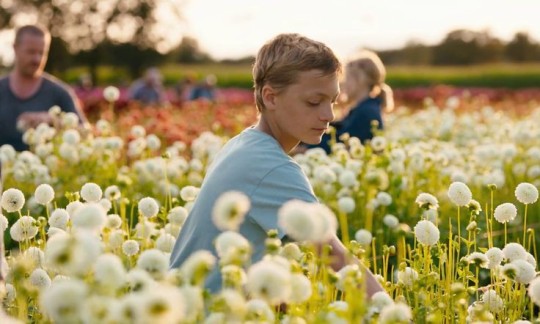
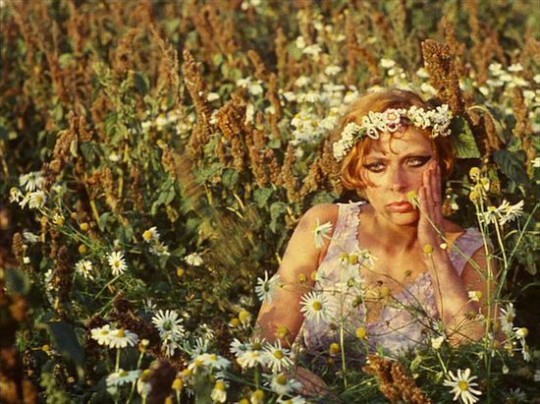
Movie Parallels- Big fish (2003), Marie Antoinette (2006), Bright Star (2009), Twilight (2008), Voices in the wind (2020), Under the Hawthorn tree (2010), Atonement (2007), American Beauty (1999), Close (2022), Daisies (1966)
#big fish#marie antoinette#sofia coppola#kristen dunst#atonement#book adaptation#joe wright#daisies#close#ian mcewan#favorite books#books#twilight#robert pattison#kristen stewart#japanese movies#japan#kiera knightley#jamie dornan#benedict cumberbatch#saorsie ronan#james mcavoy#ewan mcgregor#period drama#flowers#garden#flower bed#red roses#roses#movies
66 notes
·
View notes
Text










LOVE IN THE AIR - KOI NO YOKAN (2024, JAPAN)
NAGUMO SHOMA (as Arashi)
&
HAYAMA TAKUTO (as Rei)
#KISSABLE LIPS (NECK)#DESIRE'S LURE#VOLUME 1#BL EDITION#JAPANESE BL SERIES#JAPAN ADAPTS MAME#GAGAOOLALA#ARASHIREI#PAYU/RAIN#ARASHI BELIEVES REI HAS BEEN SEDUCING HIM#BL-BAM-BEYOND FAMILY OF BLOGS#My GIFS#MYGIFSET#MY-GIF-EDIT
8 notes
·
View notes
Text
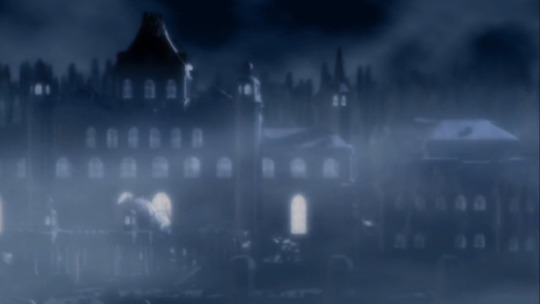
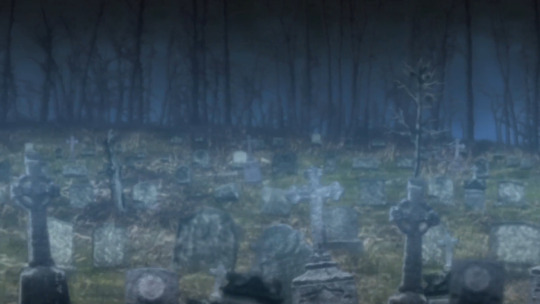

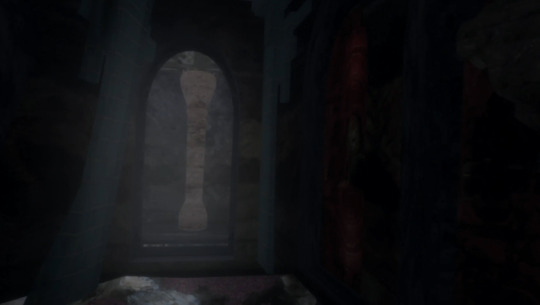

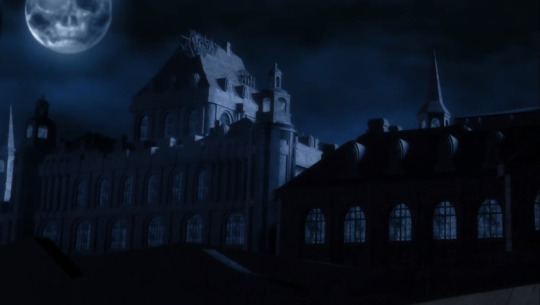
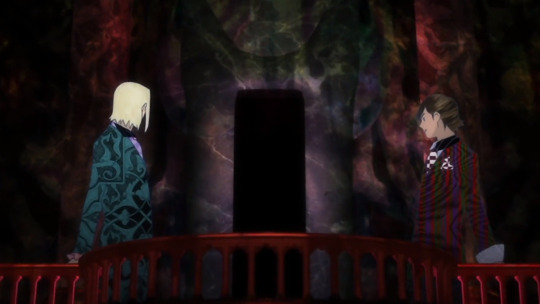


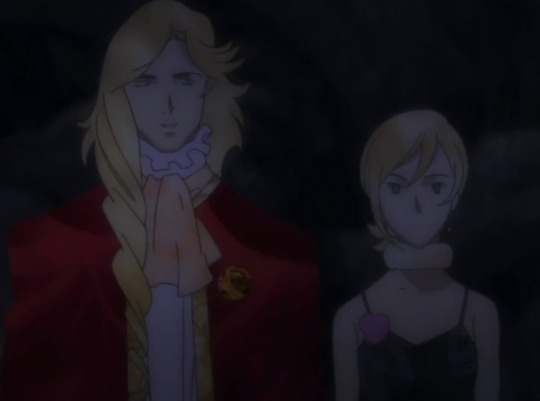
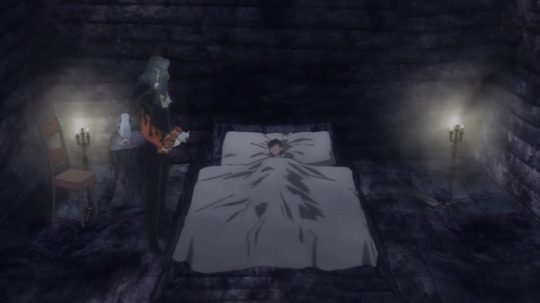
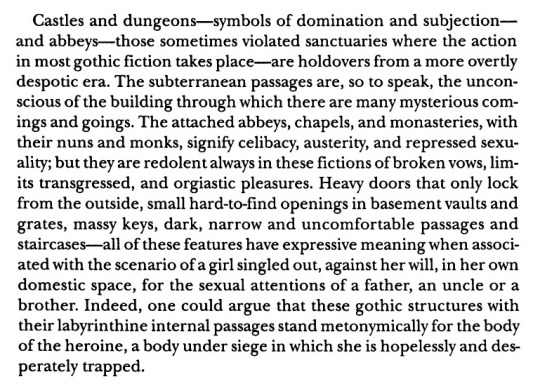
gankutsuou + incest as the meaning of the gothic novel - ruth perry
#gankutsuou#gankutsuou: the count of monte cristo#despite being an adaptation of a dumas' novel you can't ignore the japanese social context in which gankutsuou was made#as a response to the economic recession of the late 80/90s + how many young people had their futures stolen by the preceding generation#while growing up having to navigate through society's indifference towards them#that's why the anime decided to focus on the younger generation. eugenie's outfits being from the 60s are emblematic of this:#a decade in which the rise of the student movement/protests/rebellions were happening all over japan#gankutsuou addresses these themes (and the dynamics within the family unit - of institutions being parasitic upon the youth)#by adhering to the gothic paradigm - thus being a contemporary gothic piece
40 notes
·
View notes